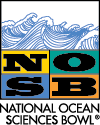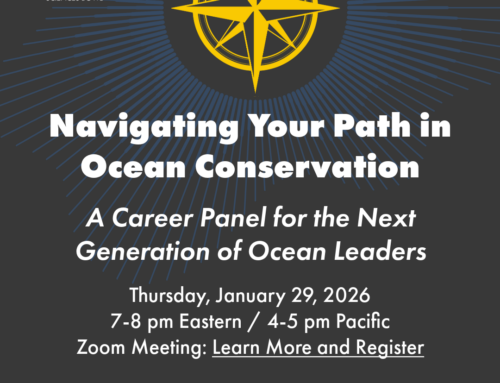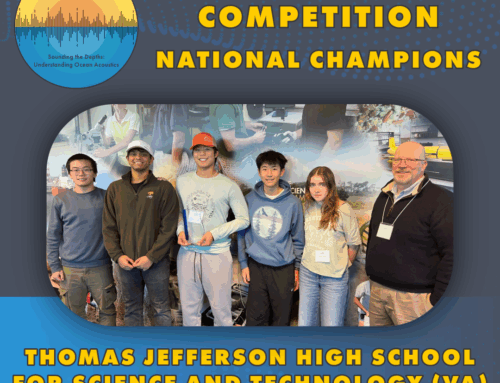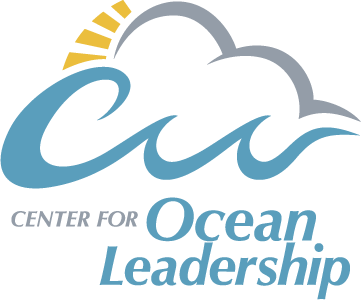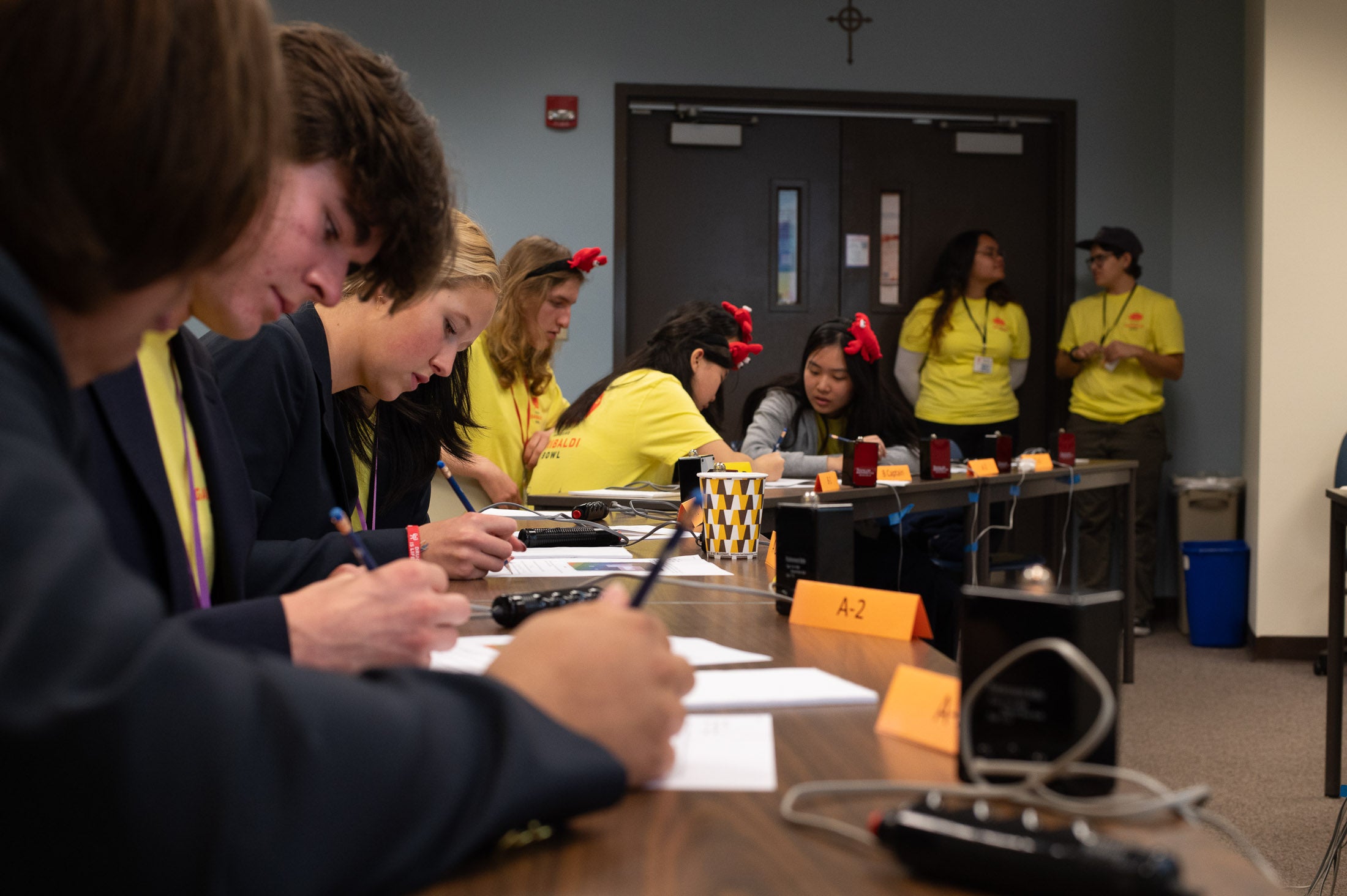Sunday, students from Dougherty Valley High School in San Ramon,
California, won the National Finals of the 24th Annual National Ocean Sciences Bowl (NOSB) for the first time in the team’s history. An interdisciplinary ocean science education program of the Consortium for Ocean Leadership, the NOSB tests students’ knowledge of ocean science topics, including cross-disciplines of biology, chemistry, policy, physics, and geology. This year, due to the ongoing COVID-19 public health crisis, students competed in a modified, virtual competition season culminating in over a week of online competition, mentoring, and interactive “field trip” events as part of NOSB Finals. Students on the championship team include Venkat Ranjan (captain), Harish Balasubramanian, Prayrak Bajaj, Daniel Zhu, and Bryan Yan. They are coached by Karen Dennis.
This year’s theme, Plunging into Our Polar Seas, tasked students with learning about the scientific processes behind and consequences of the changes taking place in the Arctic and Antarctic. To qualify for Finals, the teams first had to win their regional competitions, which took place entirely virtually for the first time ever this year. In total, more than 210 teams (made up of almost 1,050 students representing nearly 30 states) participated, adding to the over than 30,000 students who have passed through the ocean sciences competition over the last 24 years. A full list of the 2021 NOSB Finals participants is available here.
“Each year when Finals rolls around, NOSB students impress me again and again with the skills and teamwork they demonstrate, from their ability to make connections between seawater chemistry and global climate history to the sportsmanship they show their fellow competitors,” said RADM Jon White, President and CEO of the Consortium for Ocean Leadership. “Polar science is one of the most important — and rapidly changing — fields within Earth science, and NOSB students rose to the challenge of studying it with the dedication and enthusiasm I’ve come to admire from these future ocean leaders. Congratulations to our winners and to all teams who participated in our regional bowls and at the national level, and many thanks to all of this year’s numerous volunteers who made this challenging, virtual NOSB a tremendous success!”
Through buzzer-style, multiple-choice questions and open-ended team challenge questions, students tested their general knowledge of ocean science and showcased what they learned about the complex, vulnerable ecosystems of the Arctic and Antarctic as well as the research needed to address issues facing our polar regions. This year’s theme also highlighted one Arctic study in particular — the Multidisciplinary drifting Observatory for the Study of Arctic Climate, or MOSAiC, project. Modeled after the 1893-1896 Fram journey, MOSAiC is a collaborative, international research expedition that froze a scientific research vessel in sea ice for a year to study the changing ocean in the Arctic.
Teams also presented science recommendations on a piece of legislation in the Science Expert Briefing (SEB), a mock congressional hearing that enhances the critical thinking elements of the competition and focuses on real-world skills.
The top eight teams at the Finals Competition were:
1st Place – Dougherty Valley High School (San Ramon, CA)
2nd Place – Lexington High School (Lexington, MA)
3rd Place – Canyon Crest Academy (San Diego, CA)
4th Place – Santa Monica High School (Santa Monica, CA)
5th Place – Tesla STEM High School (Redmond, WA)
6th Place – Saline High School (Saline, MI)
7th Place – Oxford High School (Oxford, MS)
8th Place – Edwin O. Smith High School (Storrs, CT)
In addition to the quiz bowl-style competition questions, participants were scored separately on their performance in the SEB. Thomas Jefferson High School for Science and Technology (Alexandria, VA) won this portion of the competition, while Juneau Douglas High School (Juneau, AK) came in second and Saline High School (Saline, MI) came third.
“The NOSB has always been about more than just memorizing facts, and this year’s competition theme really gave NOSB students the opportunity to build on their knowledge of ocean systems and make connections to larger social and political challenges, such as how to prepare for the impacts of climate change, including safely taking advantage of economic opportunity that may arise from climate change such as was considered in their SEB testimony. The most pressing scientific questions of our time come from the Arctic and Antarctic, and it will take thoughtful, dedicated individuals — like those who compete each year in NOSB — to unravel and answer them.” shared Kristen Yarincik, NOSB Program Director. “Thank you to MOSAiC for their assistance with this year’s theme and events, as well as to our national office staff and the entire extended NOSB family of Regional Coordinators, volunteers, and supporters who helped make this completely virtual competition year possible.”
Due to the ongoing public health concerns surrounding COVID-19, this year’s award experiences will also take place virtually, with the top four teams getting exclusive opportunities to talk to leaders in the ocean science community about ocean issues, their career paths, and more. First place will speak with Dr. Jyotika Virmani, executive director of Schmidt Ocean Institute; Second place will talk to Dr. Nadya Vinogradova Shiffer, physical oceanographer and program scientist at NASA; third place will meet with and Dr. Katy Croff Bell, National Geographic Society fellow and founding director of the Open Ocean Initiative at the MIT Media Lab; and fourth place will meet with Dr. Kelly Kryc, senior fellow at the Center for American progress whose ocean science and policy expertise spans the federal government, the nonprofit sector, aquariums, and more. Each of the top eight teams will receive gift cards.
The 2021 national NOSB program is made possible through the following major sponsors:
- National Oceanic and Atmospheric Administration
- Schmidt Ocean Institute
- National Academies of Sciences, Engineering, and Medicine Gulf Research Program
- National Aeronautics and Space Administration
- Shell Exploration & Production Company
- American Honda Foundation
- The Curtis and Edith Munson Foundation
- Lockheed Martin
- Bureau of Ocean Energy Management
- MacGregor Norway AS
- Marine Mammal Commission
- Marine Technology Society
- Department of Energy National Renewable Energy Laboratory
- IEEE Oceanic Engineering Society
- National Marine Education Association
A complete list of sponsors can be found here.
